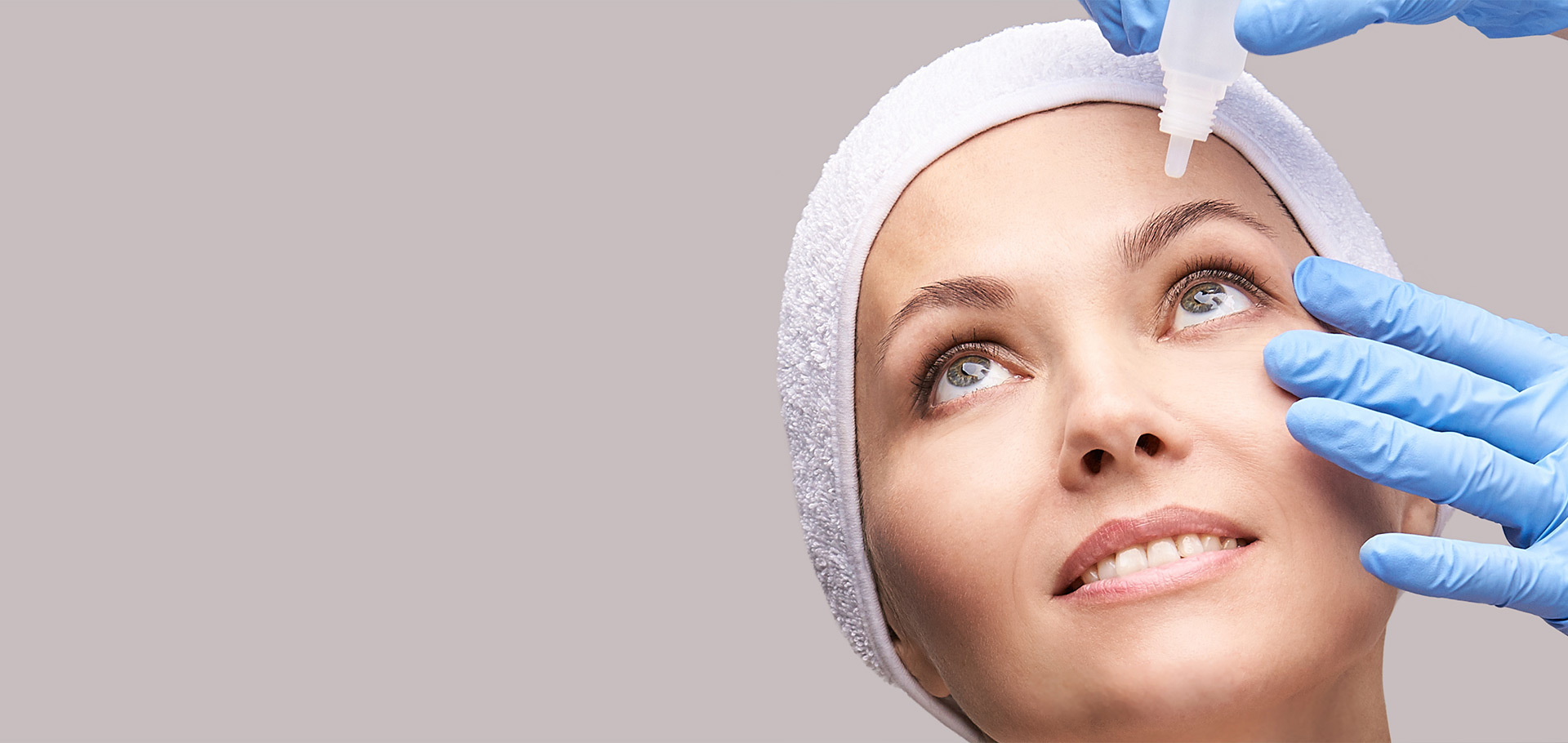
Allergic Conjunctivitis Treatment
Allergic conjunctivitis is an eye condition caused by an allergic reaction to various allergens and irritants such as pollen, dust, and mold. Inflammation of the conjunctiva, the thin membrane that covers the white part of the eye and the inner surface of the eyelids, can cause discomfort and significantly impact daily life.
- Identifying the Symptoms of Allergic Conjunctivitis
- Common Triggers of Allergic Conjunctivitis
- Uncovering the Causes of Allergic Conjunctivitis
- Treatment Options for Allergic Conjunctivitis Sufferers
- Strategies to Prevent and Minimize the Onset of an Allergic Conjunctivitis Flare-Up
- Treating Allergic Conjunctivitis
- Frequently Asked Questions About Allergic Conjunctivitis
Identifying the Symptoms of Allergic Conjunctivitis
Identifying the symptoms of allergic conjunctivitis is important for receiving the right diagnosis and treatment. Common symptoms of eye allergies include redness of the eyes; watery discharge; an itching, burning, or stinging sensation in the eyes; and blurred vision. Seasonal allergies can cause eye allergies due to exposure to pollen, indoor allergens such as dust mites or animal dander, or environmental allergies like the high amount of pollen in the summer months.
A qualified allergist can help to diagnose allergic conjunctivitis through an allergy test. During the test, the allergist will expose you to common allergens such as weeds and grass pollens, mold spores, pet dander, and more. If your body experiences a reaction to one or more of these allergens, then you are likely suffering from an allergy-related eye condition such as allergic conjunctivitis. Ophthalmologists (eye-doctors) should also be consulted for eye-related conditions.


Common Triggers of Allergic Conjunctivitis
Frequent causes of eye allergies are pollen, dust particles, pet fur, and mold spores. When a person with allergies comes into contact with these triggers, their body can react by releasing histamine into the bloodstream, which can cause eye allergy symptoms such as redness, watery eyes, and itchy and burning sensations. You can achieve relief from these allergy symptoms through different classes of medications such as antihistamines and eye drops.
Uncovering the Causes of Allergic Conjunctivitis
To uncover the causes of allergic conjunctivitis, an allergy specialist will need to diagnose and identify the allergens that trigger an individual’s allergic response. These environmental allergens can vary from weed pollens to cat dander and may cause mild swelling, eye redness, itching, and watery eyes. An allergy test will help detect which particular allergens are causing the reaction and will measure the amount of histamine your body releases upon contact with these allergens. This is especially important when ruling out other causes such as an eye infection. Treatment for allergic conjunctivitis may include antihistamines or eye drops, depending on the severity of symptoms.
Treatment Options for Allergic Conjunctivitis Sufferers
There are several treatment options for managing eye allergy symptoms and improving your quality of life. These include prescription and non-prescription medicines, long-term therapy, and surgery.
Prescription Medications
Prescription medications for allergy-related eye disorders may include antihistamines, mast cell stabilizers, and corticosteroids.
Be sure to follow the prescribed dosage and instructions provided by your eye care professional to ensure the medication’s effectiveness and minimize potential side effects.
Eye Drops
Eye drops for allergic conjunctivitis are a common treatment option that provides targeted relief for eye symptoms. Over-the- counter eye drops, such as artificial tears, can help soothe and lubricate the eyes, while prescription eye drops, such as antihistamines and corticosteroids, can help reduce inflammation and itching.
For optimal results, always follow the instructions provided by your eye care professional when using eye drops.
Oral Medications
Oral medications, such as antihistamines and decongestants, can help reduce itching, sneezing, and the runny nose that often accompanies allergic conjunctivitis. These medications work by reducing the body’s response to allergens, which in turn helps alleviate eye symptoms.
Oral medications can be taken as needed or on a regular basis, depending on the individual’s needs and the severity of their allergies.
Immunotherapy
Allergy immunotherapy (allergy shots) can be an effective long-term treatment option for individuals with severe or persistent allergic conjunctivitis. This treatment involves administering small doses of allergens over time to help the immune system build up a tolerance to the allergen, thereby reducing the severity of allergic reactions. Immunotherapy should be administered under the supervision of an allergist and may be recommended for individuals who do not respond well to other treatment options.
Surgery (in extreme cases)
In rare cases, surgical intervention may be necessary to treat severe allergic conjunctivitis that does not respond to other treatments. This option should be discussed with an eye care professional.
In extreme cases of allergic conjunctivitis, a minor surgery known as “punctal plugging” may be recommended. During this procedure, tiny silicone plugs are inserted into the tear ducts to reduce the amount of tears that escape and prevent allergens from entering the eyes. This can help reduce symptoms and provide long-term relief from eye allergies.
Lifestyle Changes for Eye Care
In addition to medical treatments, making certain lifestyle changes can help manage eye allergy symptoms and improve overall eye health. Some recommended lifestyle changes include:
- Washing your face and hands frequently to remove allergens
- Avoiding rubbing your eyes, as this can worsen symptoms
- Keeping windows closed during high pollen count days
- Frequent washing of clothes in hot water
- Bathing or showering before bedtime
Strategies to Prevent and Minimize the Onset of an Allergic Conjunctivitis Flare-Up
Allergen avoidance is a crucial component of managing allergic conjunctivitis. Identifying and minimizing exposure to allergens can help prevent flare-ups and reduce the severity of symptoms. Strategies for allergen avoidance may include:
- Using air purifiers and dehumidifiers to maintain a clean indoor environment
- Regularly cleaning and vacuuming to reduce dust mites and pet dander
- Stay indoors during pollen season
- Wearing sunglasses to protect the eyes from pollen and other outdoor allergens
- Washing hands frequently and avoiding touching the eyes
Schedule your consultation
Treating Allergic Conjunctivitis
Treatment for allergic conjunctivitis varies based on severity. General options include oral antihistamines for inflammation reduction. These complement other measures like controlling allergies and environmental triggers. Immunotherapy (allergy shots) can enhance immunity against triggers. Intranasal corticosteroid sprays may ease nasal inflammation from allergen exposure.
For milder cases, topical medications like antihistamine or decongestant eye drops are suggested. Lubricating artificial tears soothe dryness—avoid eye rubbing and trigger-related activities. Contact lens users must handle lenses carefully, as allergy-related risks are heightened. Temporarily removing lenses may be advised.


Pick one of our convenient locations
for your Allergic Conjunctivitis Treatment
Frequently Asked Questions About Allergic Conjunctivitis
In this section, we will address some of the most common questions about allergic conjunctivitis and its symptoms, causes, and treatments. If you have any additional questions or concerns, consult with an eye care professional or allergist for personalized advice.
